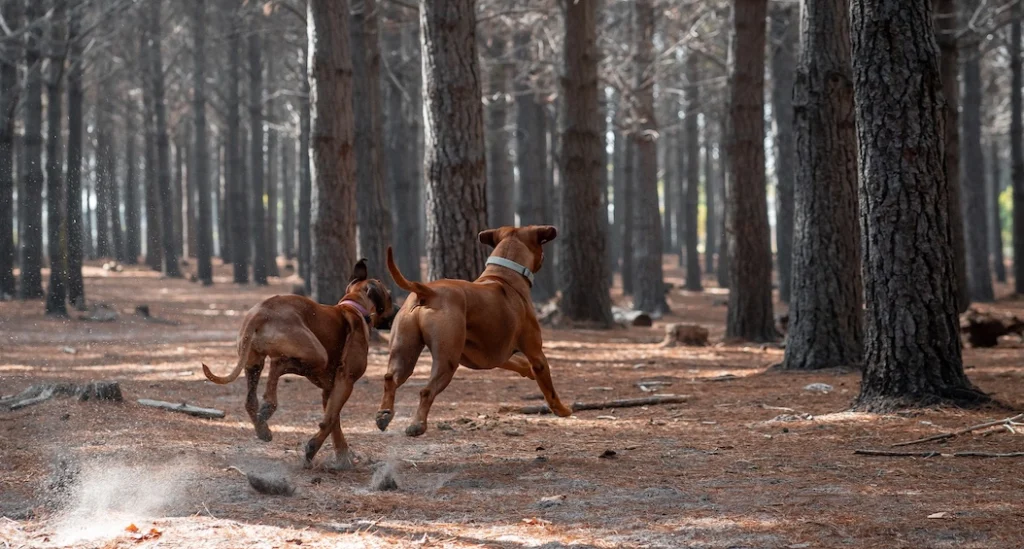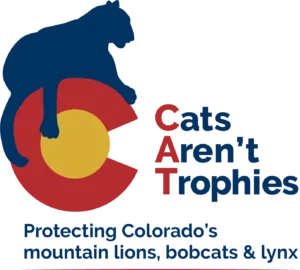Campaign finance update shows NRA, political group fund opposition, while The Wild Animal Sanctuary is Prop 127’s largest funder
Grand Lake, CO – Today 119 of Colorado’s veterinarians released a public letter to support a ‘YES’ vote on Proposition 127, a state ballot measure to protect mountain lions and bobcats from inhumane hound hunting and fur trapping.
Veterinary professionals today are trained in modern social science, which informs them when human activities are causing unnecessary and unwarranted physical and emotional pain to sentient and highly intelligent animals.
The letter is signed by veterinarians from across the state and documents extreme cruelty and physical harm caused by the recreational activities of trophy hunting and fur trapping, not only to the wild felines, but also to the domestic dogs used for hound hunting, the only way lions are trophy hunted in Colorado, according to state data.
Colorado veterinarians hold an ethical responsibility to advocate for the well-being of animals, and in their letter express deep concerns about the physical and psychological suffering inflicted on both wild cats and the hunting dogs.

“Hound hunting involves packs of dogs chasing mountain lions and bobcats over long distances, causing severe stress, exhaustion, and injuries for both the wild animals and the dogs involved,” said Dr. Christine Capaldo, DVM, of the Animal Hospital of Telluride, one of the signatories. “These hunts are not a necessity in modern wildlife management, and they cause unnecessary suffering for Colorado’s native wild cats.”
According to the letter, domestic dogs used in hound hunting often suffer from torn footpads, broken bones, and deep lacerations, and may be abandoned or killed when injured.
The trophy hunting industry commonly refers to “surplus” dogs, for an “adrenaline rush” activity that assumes debilitating injury and death to dogs required to come “face to face” with a lion. One video shows lion hound hunters pistol whipping a lion as the dogs attack the lion.
Wild cats being hunted endure intense fear, physical stress, and in most cases, death. Bobcats trapped for their fur, experience prolonged psychological and physical distress, and the methods used to kill them are outdated and inhumane.
“This is a matter of animal welfare and ethical treatment,” added Capaldo. “The cruelty inherent in these practices violates the principles of compassion that guide the veterinary profession.”
The veterinarians argue for a “YES” vote on Proposition 127 to prevent this unnecessary cruelty and ensure Colorado’s wildlife and domestic animals are treated with the respect and care they deserve.
Campaign Finance Summary
The top donor, at $600,000, to the opposition campaign is Virginia-based Concord Fund, with no professional staff or experience on conservation, wildlife, or animal welfare policy. The main donors for the opposition are the Safari Club International and its chapter, which donated through chapters around the nation. The latest report also includes a $25,000 donation from the National Rifle Association, which opposed the winning ballot initiative to ban hounding, baiting, and spring hunting of bears.
CATs announces that its largest donor, at $950,000, is the Weld County-based Wild Animal Sanctuary (TWAS), led by founder Pat Craig. TWAS is a major employer in Weld County and has an annual budget exceeding $30 million, and houses hundreds of big cats, including mountain lions and bobcats. Its team is steeped in animal care and wildlife ecology.
There are nearly 1,000 individual donations to the CATs campaign and more than 80 percent of them have been made by Coloradans. In contrast, the “No on 127” campaign has just more than 600 donations, and fewer than 40 percent are from Coloradans.
CATs qualified for the ballot with 900 unpaid volunteers who collected signatures. CATs spend less money to qualify the ballot measure, by mainly relying on volunteers, than any contemporary citizen initiative.

